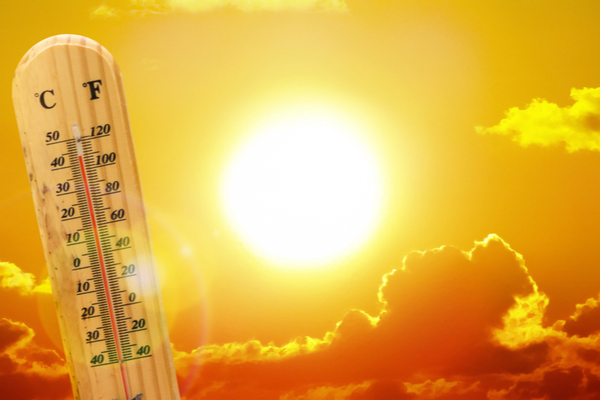As the Pacific Northwest braces for its first heat wave of 2022, many residents are remembering – and not fondly – the deadly wave of 2021, when a dome of heat that settled near the western edges of North America last summer produced an unrelenting and historic heat wave across the Pacific Northwest and British Columbia, Canada. With temperatures hovering in the 100s, the heat was extraordinarily dangerous and deadly, as it buckled power lines, caused asphalt to crumble and, according to The New York Times, was blamed for nearly 200 fatalities in the United States and possibly many more.
As AccuWeather reports, the majority of those who died lacked air conditioning, according to authorities. Dr. Jennifer Vines, health officer for Multnomah County, Oregon, which includes Portland, told CNBC at the time that the preliminary cause of death was hyperthermia, a condition in which the body becomes so hot that it can no longer properly regulate its own temperature. “Last year’s heat wave was unprecedented for portions of that region, which occasionally get heat waves during the summer, but not even close to how extreme it was last year,” said AccuWeather Climate Expert Brett Anderson.
Portland’s average high during the heat wave was 112 degrees Fahrenheit – from June 26-28 – by far the hottest three-day period ever recorded there. Each of the three days set all-time records for the city, 108 on June 26, 112 on June 27, and 116 on June 28. Seattle also set consecutive all-time heat records as the mercury hit 108 on June 28 after reaching 104 on June 27.
But what generated such stifling hot days, especially for a part of the continent that has normal summer temperatures of 20 degrees or more below last year’s extraordinary record highs? “[A] factor, which may have enhanced the warming, may have been ongoing severe to extreme drought conditions across the portions of the region during the spring of 2021,” Anderson said. “Large areas of severe drought in the spring tend to increase the risk of hotter conditions during the summer.”
Researchers and policymakers are looking into the possibility of another significant cause of the heat wave: climate change. “We cannot just turn up the A/C; we have to turn up our level of efforts fighting the underlying cause of our changing world — climate change,” Washington Governor Jay Inslee wrote in a Seattle Times op-ed shortly following the heat wave.“Our recent discomfort is but the tip of the melting iceberg,” Inslee wrote. “What we felt this week is just the opening act in a looming global disaster.”
Data from the National Oceanic and Atmospheric Administration (NOAA) shows that average temperatures across the U.S. are increasing and have been for decades. When the average temperature goes up, the extremes on either side also get warmer, leading to more severe heat waves and nights that don’t cool down as much as they used to, which results in little to no natural relief. Most of Washington, Oregon and parts of California experienced low temperatures during last year’s heat wave that were as much as 15 to 20 degrees higher than normal, according to Andrew Pershing, director of climate science at Climate Central, a consortium of independent scientists and journalists based in Princeton, New Jersey.
According to AccuWeather, on the flip side, much of the Rocky Mountains and parts of the southeastern United States managed to stay cooler during the day than normal during late June 2021, Pershing said. That’s an anomaly in the other direction; lower-than-usual temperatures become less and less likely in a world warmed by climate change, according to scientists. The same pattern can be seen this summer in the U.S.: Global warming is likely causing the current higher-than-normal hot temperatures facing the South, Midwest and western U.S. while Climate Central data show that New Mexico and parts of Arizona, Colorado and Utah are experiencing relatively lower temperatures compared to their neighbors, experts said.
So far, this year has been a far cry from the heat the Northwest experienced last summer, but it seems that period of relief is about to come to an end, almost exactly a year after the deadly heat wave. Although the projected temperatures in Portland are forecast to spike into mid- and upper 90s over the weekend, that heat range still doesn’t put a dent in the records set in 2021. “According to some climate researchers, that heat wave may have been a one-in-1,000-years event for that region,” Anderson said. “It is highly unlikely that this heat wave would have reached the extreme levels that it did without the influence of climate change.”
—
Photo Credit: Ed Connor / Shutterstock.com
